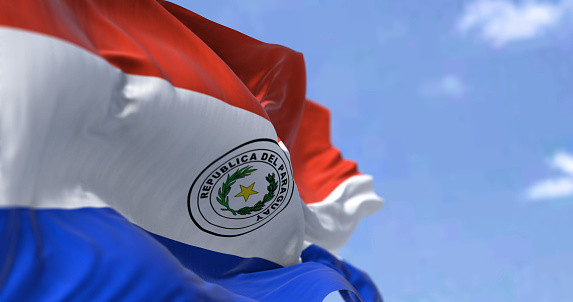
Paraguay's anti-drug agency has decided to stop its cooperation with its United States counterpart, a move that could disrupt critical efforts to fight organized crime, including drug trafficking. The decision will go into effect next year and is seen as a blow to U.S.-backed investigations into Paraguay's growing role as a cocaine transit hub.
Paraguay has become a major route for cocaine shipments from Bolivia to Europe, with suspected involvement from high-level government officials. Senator Erico Galeano has been indicted for ties to fugitive drug kingpin Sebastián Marset, whose empire extends into South American soccer leagues, as reported by the Washington Post.
Joint efforts between U.S. and Paraguayan authorities over the past years have led to record drug seizures and dismantling of complex trafficking networks, including Marset's. In 2024, the country seized nearly five tons of cocaine, ten times more than in 2023.
Paraguayan officials confirmed the change but emphasized that their focus on anti-drug efforts would continue. Jalil Rachid, minister of the anti-drug agency, said the DEA's role would shift to Paraguay's national police force. Interior Minister Enrique Riera clarified that the DEA was not leaving, but rather refocusing its efforts.
The move follows concerns about the effectiveness of the Sensitive Intelligence Unit (SIU), a collaborative task force that has been central in investigating drug trafficking and organized crime. The unit, which includes members of the anti-drug agency and national police, has made significant progress in cases like Ultranza, which exposed Marset's drug empire. Marset is accused of using soccer teams as fronts for his drug money. He remains at large after evading capture in Paraguay, Bolivia, and the UAE.
A Paraguayan official said the decision was political, stemming from frustration over the SIU's recent results. The move also comes amid accusations that some top Paraguayan politicians, including those linked to former President Horacio Cartes, have ties to the drug trade. Former officials speculated that the shift aims to shield powerful figures from further investigations.
Former President Mario Abdo also expressed concern over the decision, calling it a major setback in the fight against drug trafficking.
Recently, the United States has seen another troubling development related to its ongoing challenge in tackling international drug trade networks. A sweeping U.S. federal indictment has exposed a cocaine smuggling operation involving Bahamian police and military officers who allegedly assisted in moving drugs into the United States.
The charges accuse senior law enforcement officials in The Bahamas of accepting bribes to help traffickers smuggle massive shipments of South American cocaine through the Caribbean and into U.S. markets. The indictment charges 13 individuals with accepting bribes, providing cover for drug smugglers by leaking intelligence, obstructing DEA investigations, and manipulating customs processes.
© 2025 Latin Times. All rights reserved. Do not reproduce without permission.




